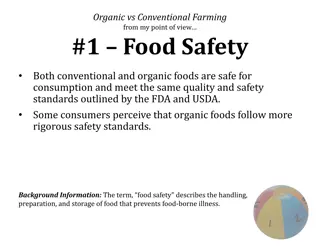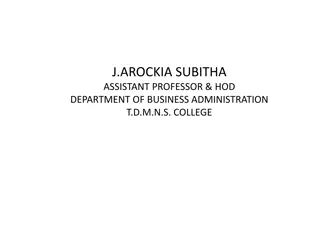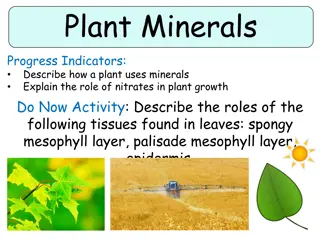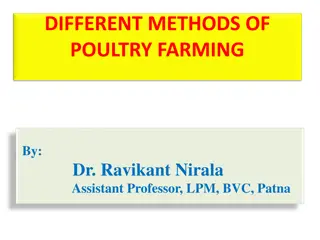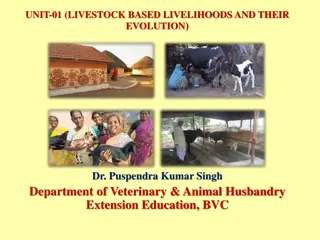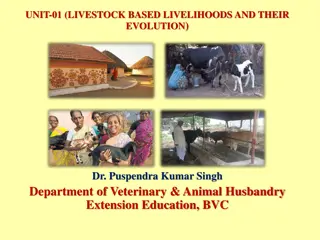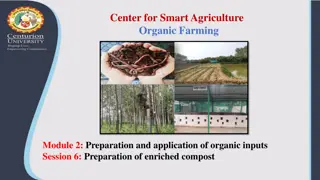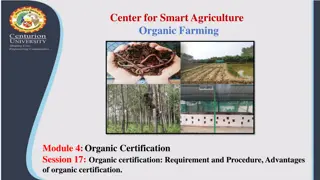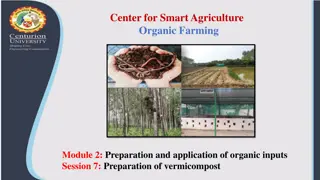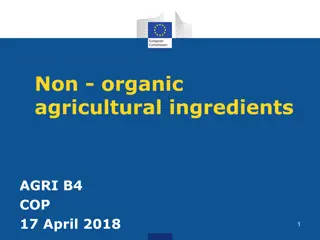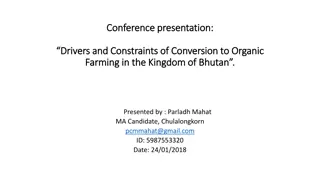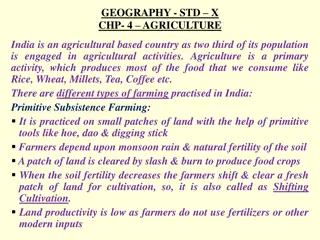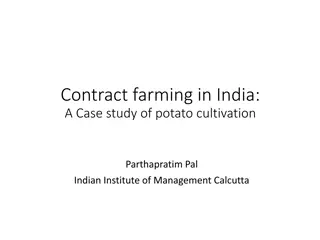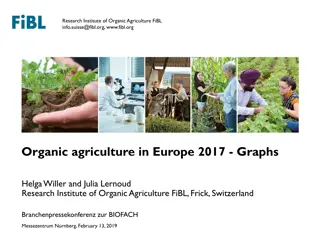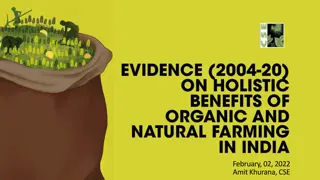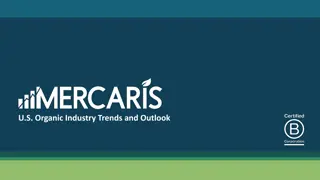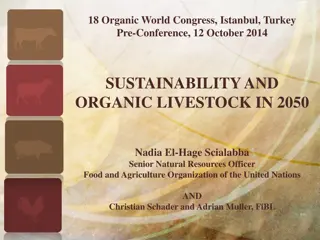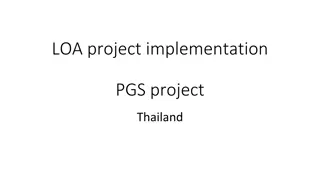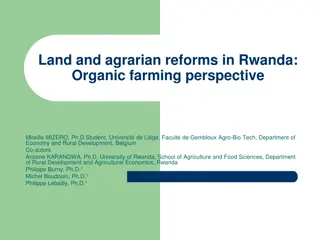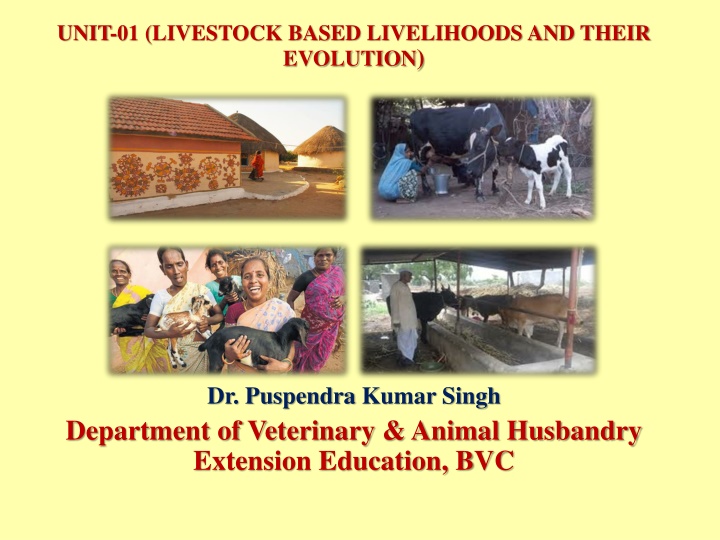
Sustainable Organic Livestock Farming Practices
Organic farming is a holistic approach that promotes sustainability and harmony with the environment. It involves practices such as using organic fertilizers, crop rotation, and biological pest control. Organic livestock farming focuses on providing animals with natural living conditions and feed while adhering to strict organic regulations.
Uploaded on | 1 Views
Download Presentation

Please find below an Image/Link to download the presentation.
The content on the website is provided AS IS for your information and personal use only. It may not be sold, licensed, or shared on other websites without obtaining consent from the author. If you encounter any issues during the download, it is possible that the publisher has removed the file from their server.
You are allowed to download the files provided on this website for personal or commercial use, subject to the condition that they are used lawfully. All files are the property of their respective owners.
The content on the website is provided AS IS for your information and personal use only. It may not be sold, licensed, or shared on other websites without obtaining consent from the author.
E N D
Presentation Transcript
UNIT-01 (LIVESTOCK BASED LIVELIHOODS AND THEIR EVOLUTION) Dr. Puspendra Kumar Singh Department of Veterinary & Animal Husbandry Extension Education, BVC
Organic Farming Organic farming is a method of crop and livestock production that involves much more than choosing not to use pesticides, fertilizers, genetically modified organisms, antibiotics and growth hormones. A holistic system designed to optimize the productivity and fitness of diverse communities within the agro-ecosystem, including soil organisms, plants, livestock and people. The principal goal of organic production is to develop enterprises that are sustainable and harmonious with the environment.
The general principles of organic production include the following: Protect the environment, minimize soil degradation and erosion, decrease pollution, optimize biological productivity and promote a sound state of health. Maintain long-term soil fertility by optimizing conditions for biological activity within the soil. Maintain biological diversity within the system Recycle materials and resources to the greatest extent possible within the enterprise.
Provide attentive care that promotes the health and meets the behavioural needs of livestock. Prepare organic products, emphasizing careful processing, and handling methods in order to maintain the organic integrity and vital qualities of the products at all stages of production Rely on renewable resources in locally organized agricultural systems
It is defined by the use of fertilizers of organic origin such as compost manure, green manure, and bone meal and places emphasis on techniques such as crop rotation and companion planting. Biological pest control, mixed cropping and the fostering of insect predators are encouraged. An integrated farming system that strives for sustainability, the enhancement of soil fertility and biological diversity while, with rare exceptions, prohibiting synthetic pesticides, antibiotics, synthetic fertilizers, genetically modified organisms, and growth hormones".
Organic livestock farming Organic farms attempt to provide animals with natural living conditions and feed. Organic certification verifies that livestock are raised according to the USDA organic regulations throughout their lives. These regulations include the requirement that all animal feed must be certified organic. Organic livestock may be, and must be, treated with medicine when they are sick, but drugs cannot be used to promote growth, their feed must be organic, and they must be pastured.
Also, horses and cattle were once a basic farm feature that provided labour, for hauling and plowing, fertility, through recycling of manure, and fuel, in the form of food for farmers and other animals. While today, small growing operations often do not include livestock, domesticated animals are a desirable part of the organic farming equation, especially for true sustainability, the ability of a farm to function as a self-renewing unit.
History The concepts of organic agriculture were developed in the early 1900s by Sir Albert Howard, F.H. King, Rudolf Steiner, and others who believed that the use of animal manures (often made into compost), cover crops, crop rotation, and biologically based pest controls resulted in a better farming system.
Regulation Organic agriculture is defined formally by governments. Farmers must be certified for their produce and products to be labeled organic, and there are specific organic standards for crops, animals, and wild-crafted products and for the processing of agricultural products. Organic standards in the European Union (EU) and the United States, for example, prohibit the use of synthetic pesticides, fertilizers, ionizing radiation, sewage sludge, and genetically engineered plants or products. Organic farming has been defined by the National Organic Standards of the U.S. Department of Agriculture (USDA) since 2000, and there are many accredited organic certifiers across the country.


